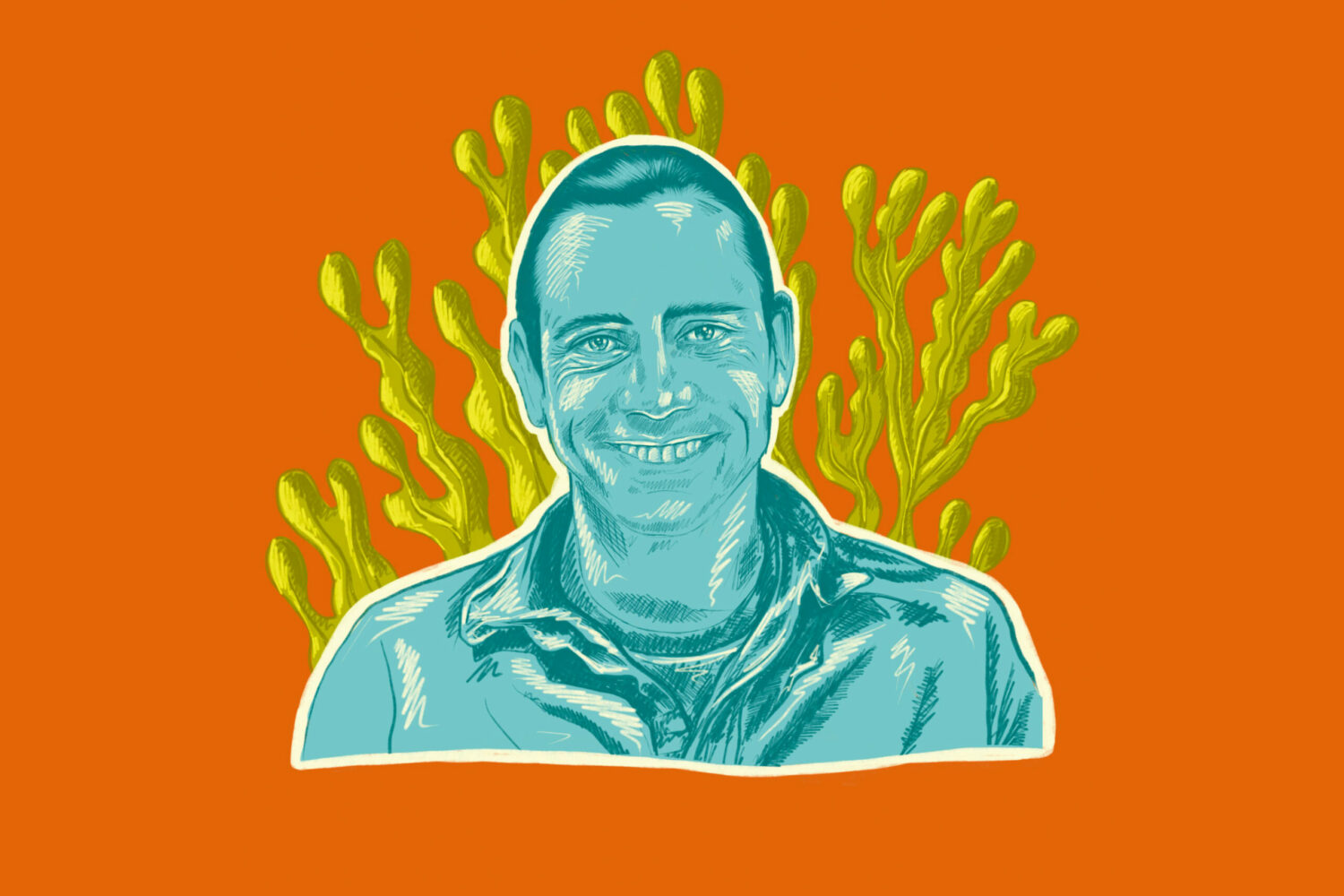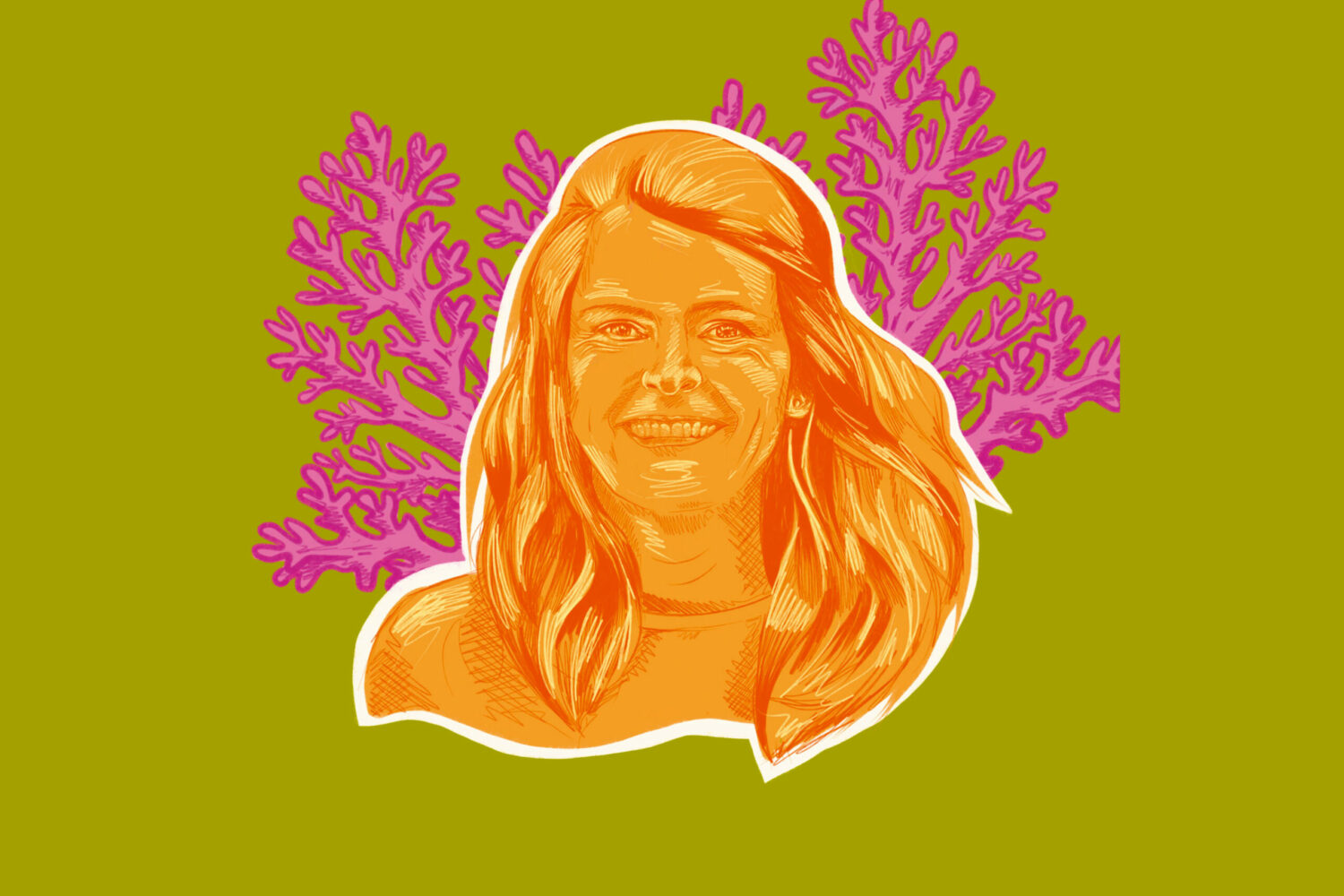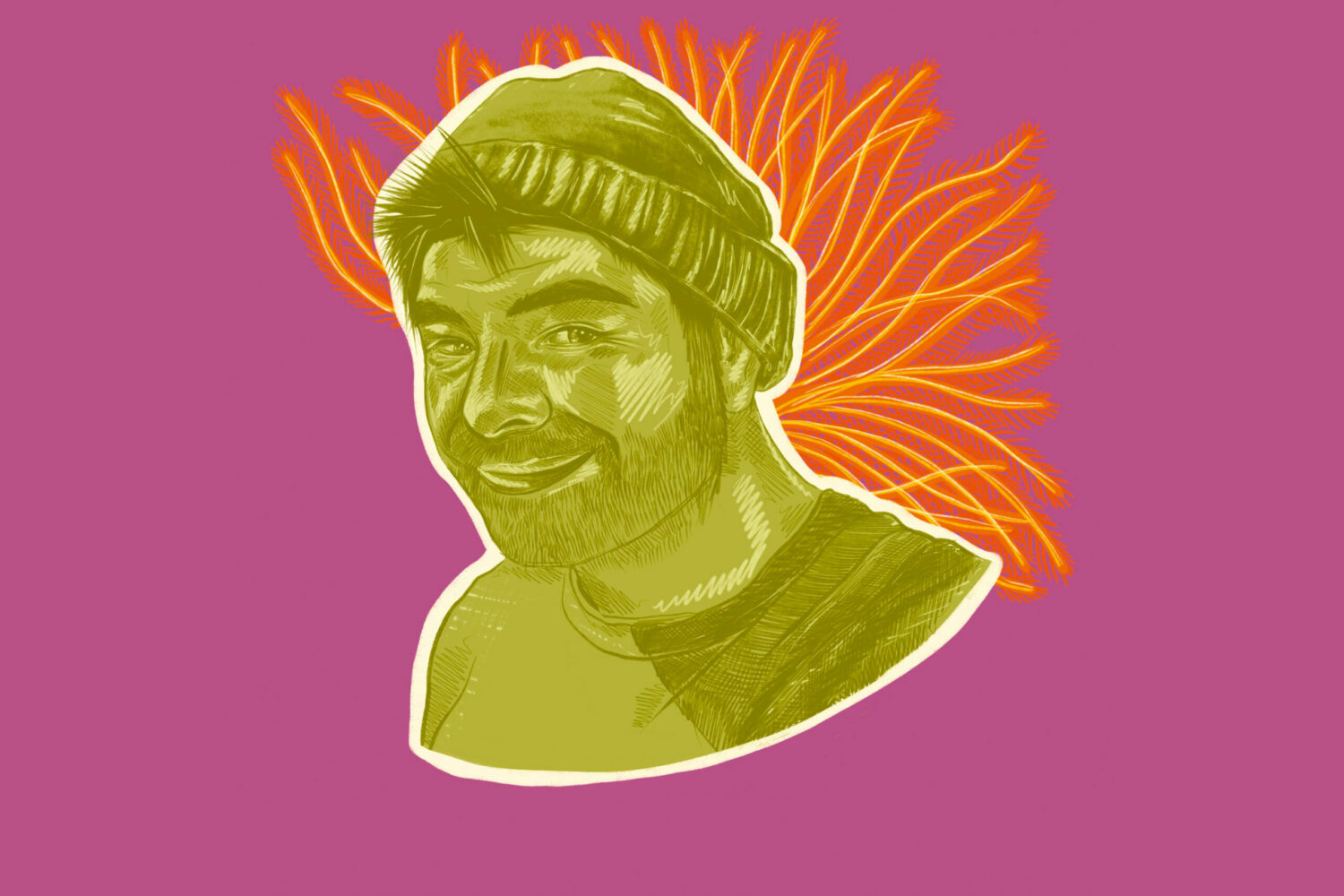Around the table
The Save our Seas Foundation scientific advisors have pooled their expertise over the years to support the foundation in reaching its achievements. As we celebrate 20 years of shark science and conservation with the SOSF, Lauren de Vos chatted to Sarah Fowler, Dean Grubbs and Andrew Chin about their reflections: their respective journeys, the opportunities ahead – and what they’ve deemed successes.
‘Are we ready for a world with sharks?’ Dr Dean Grubbs gives a wry grin as we conclude his interview. His question catches me off-guard: are we prepared to deal with our own success? Generally, we’re knee-deep in tackling dwindling shark and ray populations, vanishing critical habitats and the looming undercurrent of climate change. Imagining what we might do if we succeed seems – foolhardy? Idealistic? It’s almost tempting fate.
But Dean’s question is one posed separately by both Sarah Fowler (OBE), a founding member of the International Union for the Conservation of Nature’s (IUCN) Shark Specialist Group (SSG), and Dr Andrew Chin, a coastal fisheries scientist based in Queensland, Australia. ‘What is clear after 20 years is that we’re starting to see some successes. But we have a problem coming down the line – and that problem is success.’ Sarah’s optimism has carried her through a significant career in shark conservation. But her pragmatism keeps her looking at the horizon: ‘We’re focused on saving the last endangered shark, but what we’re not looking at are the issues that arise with success.’ Andrew’s direct research experience means he shares both Dean and Sarah’s views: ‘As shark populations rebuild in parts of the world, we’re encountering conflicts that we didn’t have 20 years ago. Depredation (fishers losing their catch to sharks) is an emerging issue. But looking to a future with sharks, we have technologies we didn’t previously. As many challenges as there are, there are equally many opportunities.’
Illustrations by XEE SUMMER | © Save Our Seas Foundation
A LIFE AQUATIC
An ecologist with a fisheries-bent, Dean is the current associate director of research at Florida State University Coastal and Marine Laboratory. ‘I was more interested in biology,’ says Dean of his introduction to shark and ray research. But he was steered towards shark fisheries management, and with scant life history information available at the time on coastal sharks, Dean started his graduate research exploring the movement patterns and habitat use of species like sandbar and dusky sharks. His focus on shark fisheries management has expanded to include understanding the life histories, habitat use and movement patterns of endangered species such as sawfishes, and poorly understood estuarine, coastal and deep-water sharks.
Sarah chaired the IUCN SSG for 14 years and led the first global chondrichthyan fishes Red List assessment. ‘I started in shark conservation 40 years ago.’ She reflects on how little information there was at the time: ‘The basic stuff: where are the animals? What’s out there? Do they even have names?’ Her focus lies in seeing scientific research feed into the implementation of management needs: ‘This is where things are important and where we have huge opportunities.’
‘And what’s keeping you here?’ A slight provocation. Andrew’s head sinks into his hands, and he glances up briefly to give a dry chuckle: ‘Am I staying here?’ he quips. ‘Sorry, it’s been a day …’ he gestures to the computer. ‘Budgets,’ he shrugs: ‘Mental jiu-jitsu.’ Stay in shark science long enough and your average day will end up lightyears from those early days of sunburnt seafaring. Funding applications, student administration: a myriad of bureaucratic bugbears crowd your time. ‘When I entered this field, it was all about sharks and diving. As my career has progressed, what drives me has changed. I value this career now because it allows me to be creative and selective. I’m always being challenged, pushed to the edge of my comfort zone. All this means that I’m never bored. As someone who has neurodivergent traits, that fits well with me. There is a joy in bringing together talented, enthusiastic people and devising ideas to solve real-world problems. In doing so, making the world a better place.’ In essence? Service and stewardship: ‘That’s important to me. I don’t work with sharks as much anymore as I do with fishers. This still allows me to work at a net benefit to shark conservation.’
Sarah quips self-deprecatingly: ‘I’ve been working on this for 40 years, and it’s beginning to happen … so I must be incredibly ineffective!’ And yet inefficient she is not. The challenge of conservation lies in its long-term nature: something at odds with the timeline of politics. ‘Countries understand that to implement their international obligations like the Convention on International Trade in Endangered Species (CITES) and Convention on Migratory Species (CMS), they must do so on a regional level. They need advice from regional fisheries bodies, and they need networks of a nature like those being set up under the CMS memorandum of understanding (the Memorandum of Understanding on the Conservation of Migratory Sharks or CMS Sharks MOU) to conduct joint projects.’ She pauses: ‘And that’s what’s keeping me in shark conservation. This is new. The potential has been there for years, but it’s now that we’re seeing real traction.’
MIND THE GAP
Dean highlights that some of our current gaps in shark conservation remain unchanged. ‘We still need fisheries scientists and applied biologists who are willing to get their hands dirty to find out basic life history information. How many pups does this species have, and how often? How long does it take for them to reach maturity? We can’t manage their populations if we don’t know the answers to these questions.’ Andrew adds: ‘We undervalue taxonomy, and we need capacity in that space.’
‘Many species are migratory, and many are shared stocks. One country cannot in isolation manage a threatened species; they must cooperate with their neighbours.’ Sarah is excited to see countries increasingly adopting this regional approach. ‘I would also like to see more implementation of the Regional Seas Conventions and Action Plans. These are not fisheries plans, they are environmental conventions. The challenge of starting to do the work of connecting the environment and fisheries at a regional level excites me.’
‘But we have a real problem with siloes,’ she reflects. ‘The environment silo that deals with CITES, CMS and protected species, and the fisheries silo which understandably deals with commercially important species. Everyone has limited capacity and resources. And each ‘side’ doesn’t know much about the other; we need to break down siloes and get people talking to one another to understand that they have separate tools that are complementary and can achieve a common goal of sustainability.’
‘The recent CITES listings are a success at a global scale,’ offers Andrew. ‘Whether that translates into effective implementation is hard to quantify. At certain scales, it surely does. But – and here’s the philosophical point that highlights what remains a challenge in shark conservation: a policy win now can indicate a previous conservation and management failure. The fact that we need policies to protect species indicates problems in other areas. Ultimately, the real “wins” would be species being downlisted on the IUCN Red List and removed from CITES and CMS.’
‘We need infrastructure and education in many countries to support shark management. The United States of America (US), Australia and others appear as “bright spots” with sustainable shark fisheries.’ Dean has seen the course of change in his lifetime, but he’s cautious before suggesting that this is easy to achieve globally without real support: ‘The infrastructure for shark management is lacking across most of the world. And to succeed, diversity of income and livelihoods is also necessary, as well as other sources of protein.’ He continues: ‘We also need more long-term surveys. If you scrutinise the places where we’ve had successes, they’re usually places where long-term datasets are available. We can then monitor what’s happening: track declines, monitor recoveries.’ Andrew expands on the same point: ‘We have new policies and regulations being promulgated, but is their effectiveness and are those potential recoveries being monitored at the correct scale? Once conservation policy is passed, how does our adaptive management cycle continue? How is it being implemented, monitored, reviewed and improved?’
Andrew takes a long pause and draws a breath: ‘We need to rebalance the conservation spend to fund capacity. As a society, we undervalue conservation. We consider those working in conservation as being invested in “passion projects” and therefore they don’t deserve to be paid like someone working in a commercial entity. Ecosystem services are undervalued, and the cohort of people working to maintain the very fabric of our existence are not valued or funded. People are very willing to fund projects, but unless we can give the people responsible for executing those projects an opportunity to earn a decent living, we can’t truly succeed.’
Andrew’s thoughts speak directly to the need to support mental health and career longevity among scientists: ‘One of our challenges is that we operate in an environment of scarcity. The hardships and uncertainty generate anxiety.’ A key challenge that we need to remedy, he suggests, is what we are pushed to prioritise in the sector. ‘Grant comparisons, publication metrics: what’s really important? When I reflect on my career, what strikes me as the most meaningful wins are the connections I’ve made with people, not the publication of a paper. It’s the tangible changes in the way people operate on the water, and the way people think about sharks and conservation. That’s what matters.’
Illustration by XEE SUMMER | © Save Our Seas Foundation
A WORLD OF SUCCESS
‘Twenty years on, we’re seeing shark data being applied in conservation management,’ concludes Sarah. ‘The shark conservation framework is much stronger, and we have national legislation to protect species – but we also have far more activity on a regional basis, and internationally.’
‘We’ve seen the emergence of a third cohort of shark and ray researchers, with many of them situated in Africa, Asia and South America. This is fantastic! They’re responsible for a large increase in innovative work being done,’ says Andrew celebratorily.
‘I’m optimistic that we’ll be able to move sawfish from endangered status to a lower threat status, in the US, at least before I retire!’ says Dean with a smile. ‘I think that we also have lessons to learn from the places where we’ve had some successes. We need to use what we’ve learnt to engage with the public and prepare them for what success looks like: prepare them for a recovered shark population.’ He casts his mind ahead to the possibility of more shark recoveries across the ocean. ‘In the areas where sharks are recovering, we have a shifting baselines issue. Where shark depredation is happening, fishers sometimes complain that sharks are now getting out of hand! They call for culls, or removal of protected areas. But if you’ve been fishing like I have in Florida over a longer period, you’ll know that what we’re seeing now is similar to what we saw 45 years ago, when the ecosystem functioned better. If you’ve only been fishing since the early 1990s, when shark populations were in crisis, of course it appears that the population has exploded!’
Dean and Sarah are calling for us to prioritise the headspace (and resources) to envision a world where we can all be better at participating in living with sharks, whether we need to continue to fight for their protection, or whether we need to learn to live alongside them. Twenty years have brought us far from the Jaws phenomenon. To move towards this world requires breaking down barriers and recognising that we all have the same objective: a sustainable future with sharks. Andrew’s final reflections push us even further, urging us to create a conservation community that rejects our current culture of sleep deprivation, publish-or-perish competition, and chronic stress. ‘There’s a lot of enthusiasm out there; perhaps what we need is guidance and training in conservation leadership. Something to have us think broadly about our conservation effort, our people, our community, ourselves. And how to build a sustainable, effective conservation effort.’



